Maidan Nezalezhnosti, or Independence Square, in Kyiv, on Feb. 24.Brendan Hoffman/The New York Times News Service
The Western alliance is punishing Russia for its invasion of Ukraine by imposing sanctions on Russian banks, placing bans on high-tech exports to the country and personally punishing top politicians and oligarchs close to President Vladimir Putin.
The economic measures announced Thursday by the United States, the European Union, the United Kingdom, Canada and several other countries will curb the ability of Russian financial institutions to do business in the West, freeze some of their assets and choke off the flow of semiconductors to the country.
The alliance, however, stopped short of implementing some of the toughest sanctions under discussion.
The West will not kick Russia out of SWIFT, which facilitates international banking transactions and trade-related payments. Moscow relies on the system to collect crucial fossil fuel sale royalties that are the backbone of the government’s finances.
The sanctions are also relatively lenient in other ways. They do not target Russia’s oil and gas exports. They allow Western companies to continue investing in Russia, and they apply only partially to the country’s largest retail bank. And they don’t directly target Mr. Putin.
The omissions represent a compromise between two sides of the Western alliance: on one side, the U.S. and the U.K., who wanted to go farther and bar Russia from SWIFT, and, on the other, European countries such as Germany, who do voluminous trade with Russia and rely on it for oil and gas imports. The current list of sanctions signals an unwillingness on the alliance’s part to absorb economic pain themselves in punishing Russia.
U.S. President Joe Biden said during a Thursday news conference that Mr. Putin was trying to “re-establish the former Soviet Union” as part of a “contest between democracy and autocracy.”
“Putin is the aggressor. Putin chose this war, and now he and his country will bear the consequences,” Mr. Biden said. “This is a dangerous moment for all of Europe, for the freedom around the world. Putin has committed an assault on the very principles that uphold global peace.”
Mr. Biden said the sanctions would include freezing the U.S. assets of VTB Bank, Russia’s second-largest bank, and banning U.S. companies from dealing with it. The measures would also restrict the ability of Sberbank, Russia’s main retail bank, to do transactions in U.S. dollars, but would not freeze its assets.
The President said technology export controls would cut off about half of Russia’s high-tech imports, impeding the Russian military and the country’s shipbuilding and aerospace industries, including its space program. Russian state-owned enterprises, including railway, natural gas and electricity companies, will be barred from raising capital in U.S. markets.
The U.S. will personally sanction 10 powerful Russians and their families, including high-ranking cabinet minister Sergei Ivanov and Igor Sechin, CEO of Rosneft, a state-owned oil company.
Mr. Biden said the alliance had not cut Russia out of SWIFT because “that’s not the position that the rest of Europe wishes to take,” but that it is “always an option” in the future.
SWIFT, based in Belgium, allows financial institutions to quickly and easily perform transactions across international borders. Without it, Russian banks and corporations would incur significant costs and waste time performing transactions directly with other banks or going through a smaller, alternative system set up in China.
Members of the U.S. Congress put pressure on Mr. Biden to go further.
In a statement, Bob Menendez, the Democratic chair of the Senate foreign relations committee, called on the White House to kick Russia out of SWIFT, target the Russian Central Bank, hit Russian industries directly and take away assets belonging to Mr. Putin and his circle.
“As we seek to impose maximum costs on Putin, there is more that we can and should do,” Mr. Menendez said.
Republican Senator Lindsey Graham chided Mr. Biden for not hitting Russia harder with sanctions before the invasion. Now, he said, the U.S. should not wait on Europe to enact tougher measures.
“We should not be seeking permission from allies to go after Putin and his cronies. We should move ahead forcefully against Putin, a war criminal, and demand our allies join us,” he tweeted.
Members of the North Atlantic Treaty Organization planned an emergency meeting for Friday, and said they would scramble more troops to Eastern Europe. But Mr. Biden reiterated a longstanding promise to use forces only to defend NATO members and not to fight in Ukraine, which is not part of the military alliance. Mr. Putin in a televised address warned other countries that attempts to interfere with Russia’s invasion of Ukraine would result in “consequences you have never seen in history.”
The leaders of the EU and the G7, including Prime Minister Justin Trudeau, spoke earlier Thursday by video conference to coordinate the pushback on Russia. Japan, Australia and New Zealand are also imposing sanctions.
Mr. Trudeau told a news conference that Canada will target 62 Russian individuals and entities, including members of the Russian elite and their family members, as well as the military contractor Wagner Group and major Russian banks. He said among the people targeted would be members of the Russian Security Council, including Defence Minister Sergey Shoygu, Finance Minister Anton Siluanov and Justice Minister Konstantin Chuychenko.
The Prime Minister also announced Canada will no longer approve export permits for semiconductors and other technologies to Russia, and will cancel all existing permits.
“These sanctions are wide-reaching. They will impose severe costs on complicit Russian elites, and they will limit President Putin’s ability to continue funding this unjustified invasion,” Mr. Trudeau said.
He said Mr. Putin has triggered the greatest threat to European stability since the Second World War.
“Russia’s actions stand in direct opposition to the democratic principles that generations of Canadians have fought to protect,” Mr. Trudeau said. “Democracies, and democratic leaders, everywhere must come together to defend these principles and stand firmly against authoritarianism.”
The value of the exports tied to the permits Canada is cancelling totals about $700-million, Foreign Affairs Minister Melanie Joly said. She said Canada has evacuated its diplomats from Ukraine but would keep helping Canadians in the country remotely.
Sandra McCardell, a senior Canadian foreign official, said cutting off Russia from SWIFT would only be done as “part of a broader international effort.” She would not say whether Canada favoured such a move.
Another senior government source said there had been no decision on whether to take a position on this idea. The Globe and Mail is not naming them because they would not speak publicly otherwise.
Ukrainian President Volodymyr Zelensky said that he had spoken with Mr. Trudeau Thursday. “Now, more than ever, we need concrete support,” he tweeted. “I count on leadership of Canada in this process!”
Lawyer John Boscariol, head of McCarthy Tetrault’s trade and investment group, said Canada and its allies have avoided “nuclear options” such as banning any financial services to Russians, requiring permits for all exports to Russia or enacting sectoral bans on dealing with Russian industries such as mining or technology.
In response to the Feb. 24 attacks on Ukraine, Canada’s new sanctions target a number of individuals and entities, including Russian elites and members of the Russian Security Council. In addition, all export permits to Russia have been cancelled or denied. This amounts to hundreds of permits worth more than $7-million, says Foreign Affairs Minister Melanie Joly.
Igor Logvinenko, an expert in Russian finance at Occidental College in Los Angeles, said the West appeared to be continuing its incremental approach to sanctions. While the measures might cause some difficulties in Russia, he said, the Kremlin has the financial reserves to blunt their effects in the short term.
More significant measures, he said, would entail sacrifices by Western companies. BP, for instance, has a major joint venture with Rosneft, and barring Russia from SWIFT could be hard for Western banks.
“The most effective sanctions are the ones that are going to be painful in the West. Sanctioning Western companies, Western individuals, Western projects,” he said. “That interdependence with Russia goes both ways.”
One trend that may matter, he said, is Western politicians and business leaders quitting the corporate boards of Russian companies in the aftermath of the invasion. Turning corporate Russia into an international pariah could put pressure on the country’s elite.
The Russian embassy is Canada released a statement Thursday that attempted to justify Mr. Putin’s actions.
It said the “political-military situation” and NATO’s military posture in Europe “created a clear and immediate danger for Russia that could not have been mitigated by any other means than those Russia has to use today.”
The embassy said Russia’s repeated efforts to negotiate a new security arrangement in Europe have been scorned by the West.
China, meanwhile, is not sanctioning Russia. And Mr. Biden said it was still unclear whether India, the world’s largest democracy, would back the West on Ukraine.
Russian markets lost about a third of their value Thursday, while markets in the U.S. rebounded throughout the day to finish only slightly down, after the West held off on its toughest measures.
The U.K. announced sanctions similar to the American measures, including restrictions on Russian banks, bans on technology exports, and prohibitions on the Russian government and Russian companies raising money on the U.K.’s markets, a major source of funds for them. The Russian airline Aeroflot will no longer be allowed to land planes in the U.K.
Roughly 100 powerful Russians, including oligarchs close to Mr. Putin, will have their British assets frozen, won’t be allowed to travel to the U.K. – where many have homes – and will no longer be allowed to do business with British companies.
Prime Minister Boris Johnson said these moves would “hobble” the Russian economy.
“Diplomatically, politically, economically and, eventually, militarily, this hideous and barbaric adventure of Vladimir Putin must end in failure,” he said, calling Mr. Putin a “bloodstained aggressor who believes in imperial conquest.”
Mr. Johnson signalled that the door was still open to blocking Russia from SWIFT, but said it would only happen if the U.K.’s allies agreed.
At an emergency summit in Brussels, EU leaders agreed to bar Russian banks and other companies from European debt markets, and curb exports.
“We want to cut off Russia’s industry from the technologies desperately needed today to build the future,” said European Commission President Ursula von der Leyen.
German Chancellor Olaf Sholz said the EU would make Mr. Putin pay a “bitter price” for the invasion, with severe sanctions co-ordinated with NATO and other allies. “It will be shown that Putin has made a severe mistake with his war,” he said in a televised address.
He said NATO would also give further help to members of the alliance’s eastern flank, several of whom border Ukraine and Russia.
The allies also announced sanctions on Belarus, which has aided Russia’s invasion of Ukraine in part by serving as a staging ground for forces attacking nearby Kyiv. The U.S. will sanction Belarusian banks and defence firms, while the U.K. will target Belarusian elites who have British financial holdings.
Western countries announced more limited sanctions on Russia earlier this week, before the invasion. They were chiefly aimed at the Russian government and a handful of banks with little foreign exposure, raising sharp criticism that the moves did not go far enough.
Our Morning Update and Evening Update newsletters are written by Globe editors, giving you a concise summary of the day’s most important headlines. Sign up today.
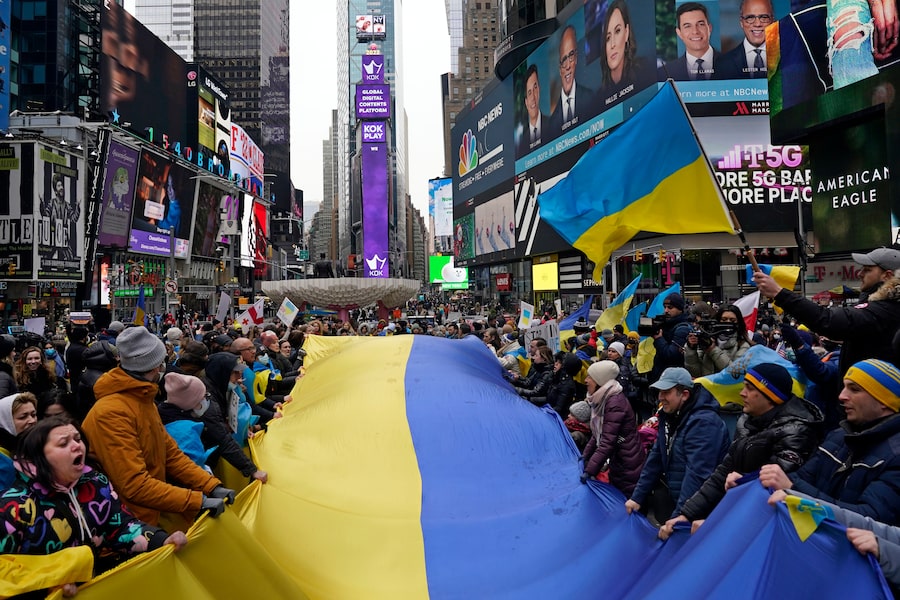

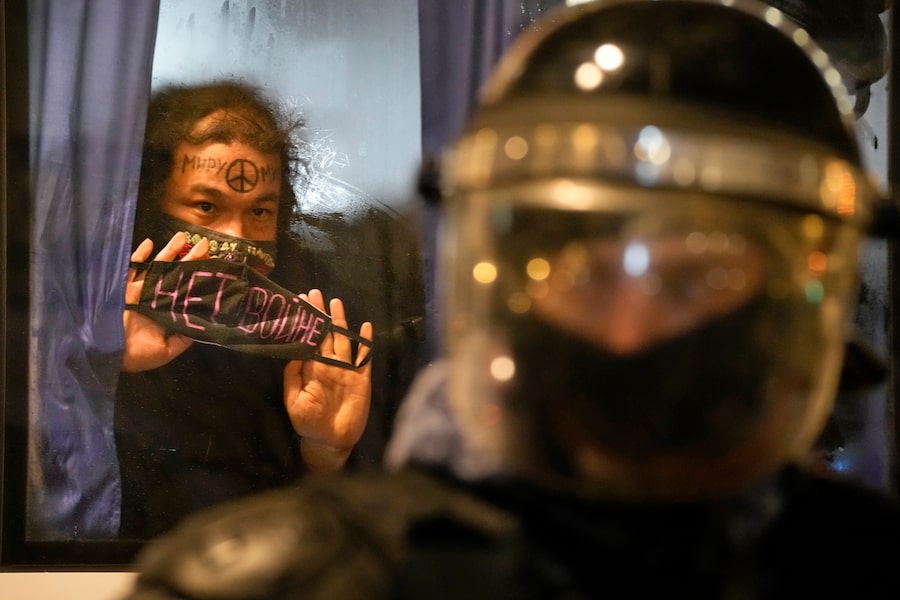
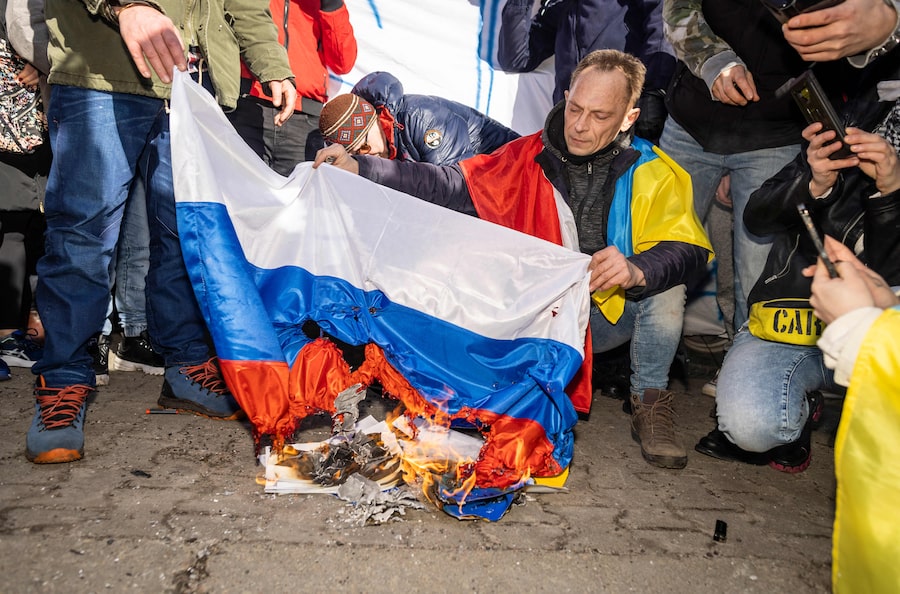
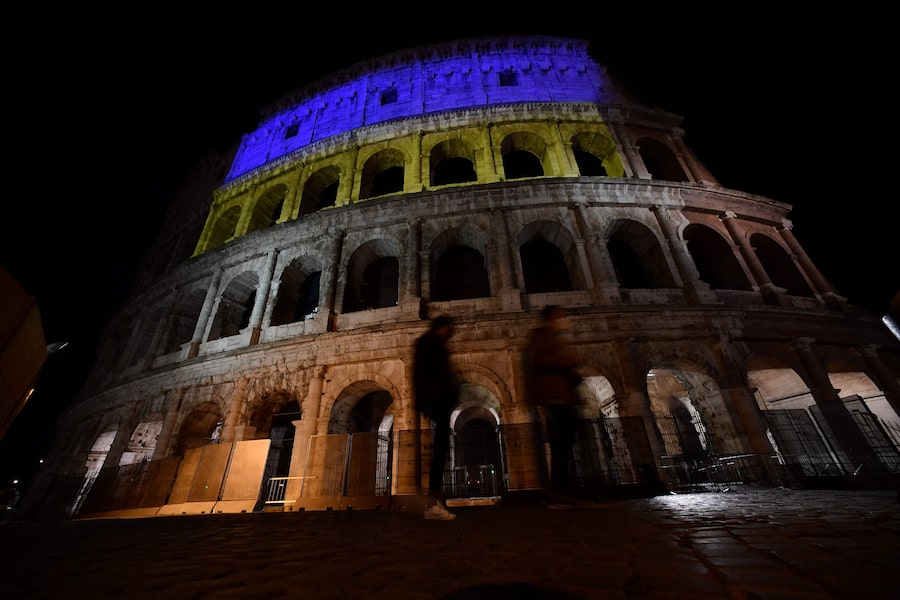

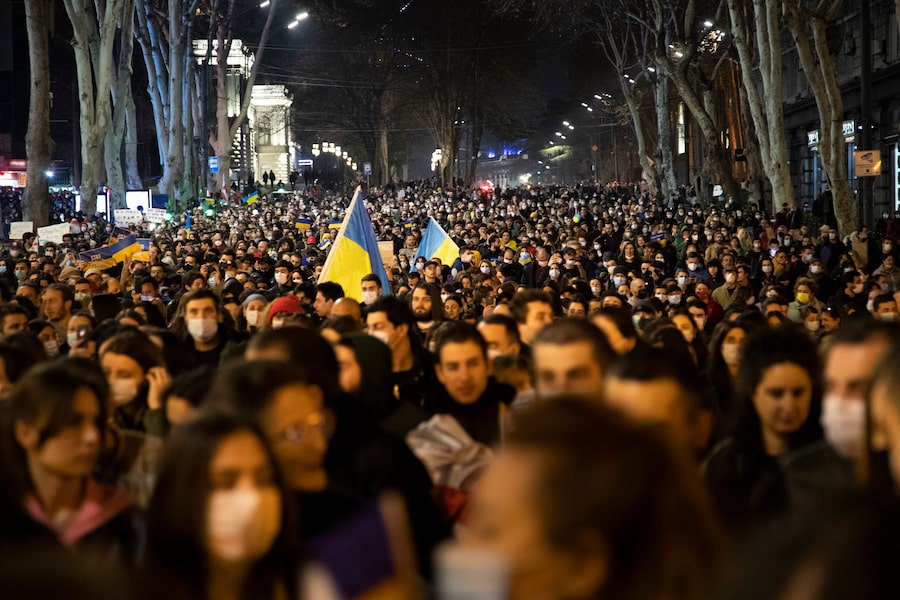



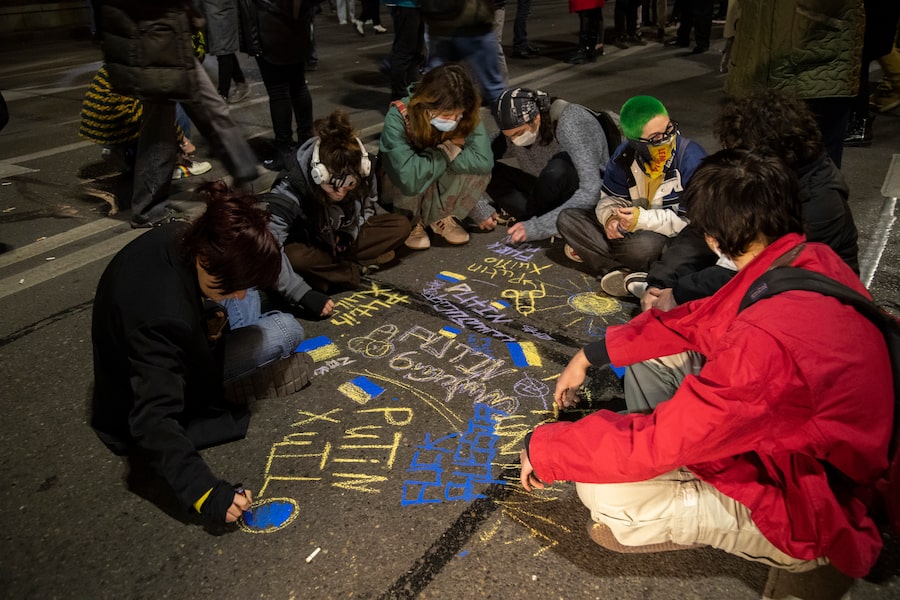



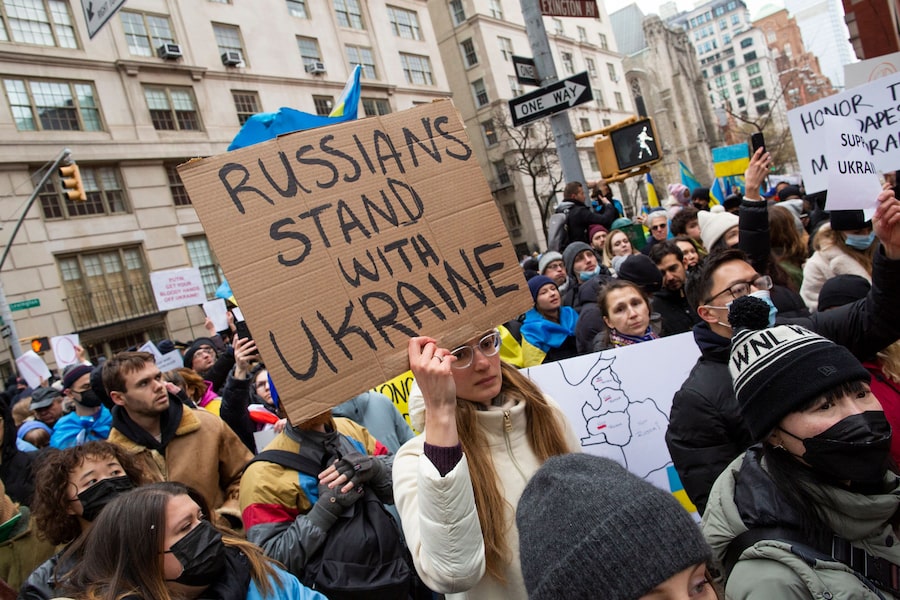



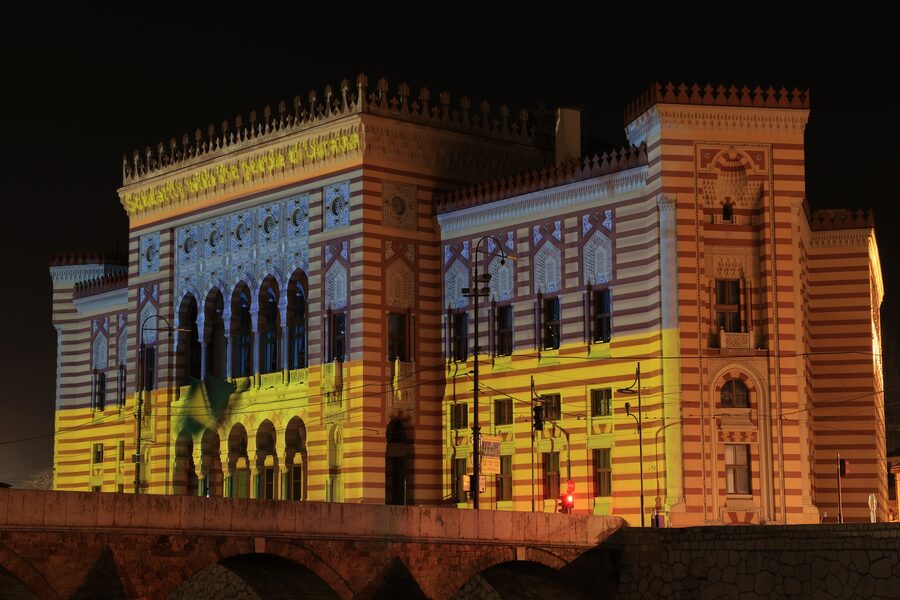
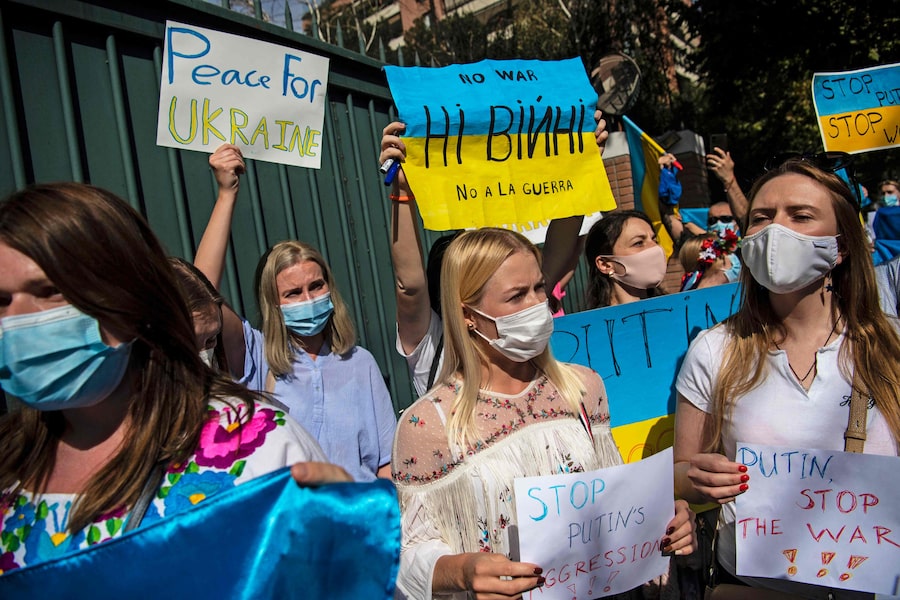


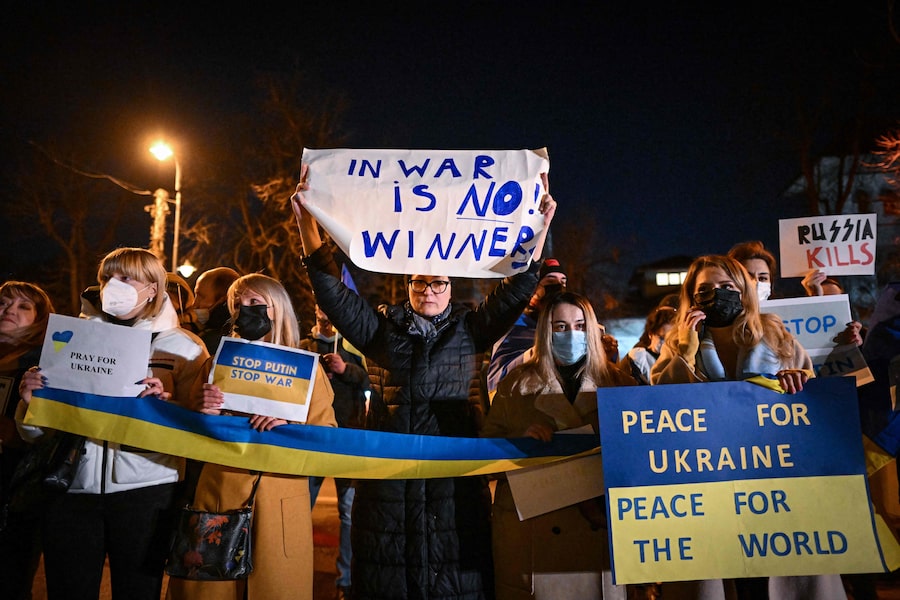

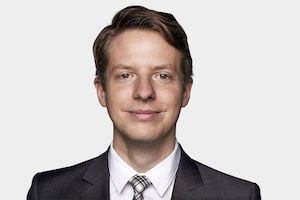 Adrian Morrow
Adrian Morrow Steven Chase
Steven Chase